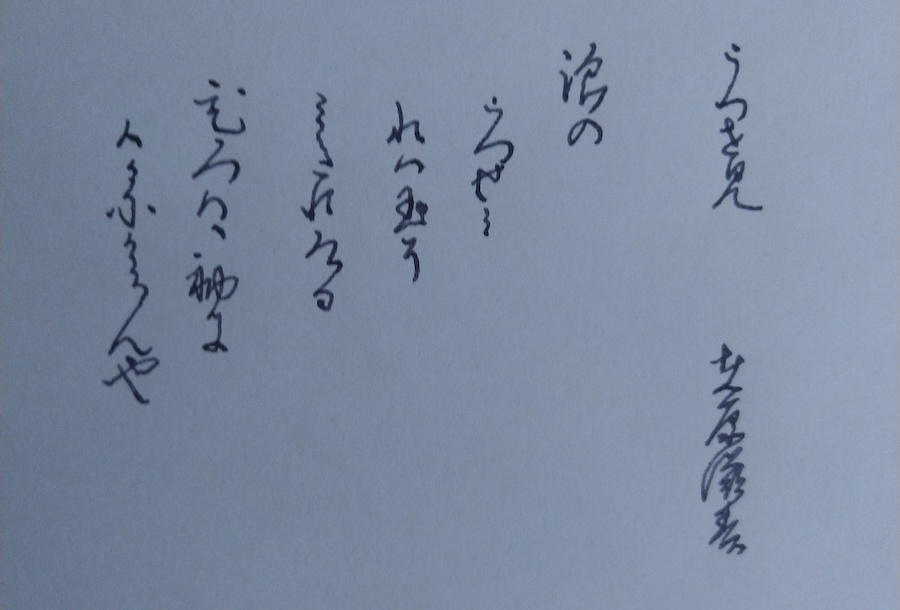One of the characteristic rhetoric devices in Japanese poetry is 掛詞, a pun word. It utilises homonymy to add another layer of meaning.
古今和歌集‧Collection of Ancient and Modern Japanese Poetry, the first imperial waka‧和歌anthology, has a whole section Acrostics‧物の名 where the name of each poem is a kakekotoba that can be heard in that poem.

This is a poem #424 by Ariwara-no Shigeharu‧在原滋春, a son of another famous Heian poet Ariwara-no Narihira‧在原業平.
浪のうつせ見れば玉ぞみだれけるひろはば袖にはかなからむや
A translation from Waka Poetry:
Waves strike
The shoals-seeing jewels
Scatter,
Were I to gather them within my sleeves
How swiftly would they vanish?
The shoals-seeing jewels
Scatter,
Were I to gather them within my sleeves
How swiftly would they vanish?
- From the words 打瀬 and 見れば·seeing there forms a word 空蝉·cast off cicada shell. Cicadas live in larva form for up to 17 years underground, and then moult into an imago that lives for only a few days. Thus the shell left after the moulting has become a metaphor for transience, which refers here to jewels of water drops that are scattered by striking waves and hit the sleeves of the poet’s garment.